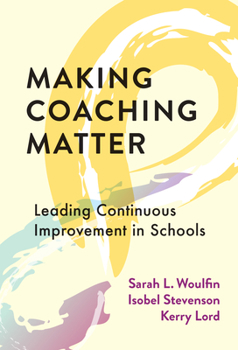Making Coaching Matter: Leading Continuous Improvement in Schools
Districts and schools often count on coaching to promote student learning and organizational change. Across the United States, a wide variety of coaches engage in various types of work with teachers as well as school leaders. But coaching is often loosely defined, weakly supported, and ultimately underutilized, and as a consequence, its promise and potential have not been fully realized. In this book, the authors address misconceptions about the goals of coaching, what it involves, and how it aligns with reform efforts. They advance a new, coherent framing of coaching as a lever for strategic, equitable school improvement. Bridging research, theory, policy, and practice, this book provides insights to help educational reformers and district and school leaders strengthen the structures and activities of coaching. This timely book illustrates how to make coaching matter by assembling infrastructure and creating conditions so that coaching advances change in robust, sustaining, and equitable ways.
Book Features:
Provides useful information for educational leaders whose expertise may not extend to coaching, including tools and reflective questions. Offers a strong theoretical and research-based foundation, along with the authors' collective experience as researchers and practitioners and the voices of coaches and other educational leaders. Advocates for a coaching model that supports a district's overall strategy for centering equity and improving student learning. Describes how to build capacity and continuously improve coaching, and how to support coaching through leadership, logistics, and resources.




